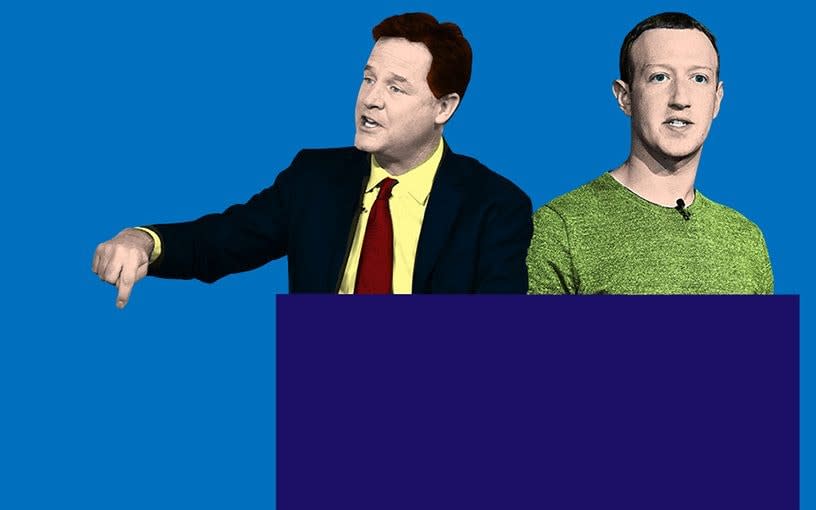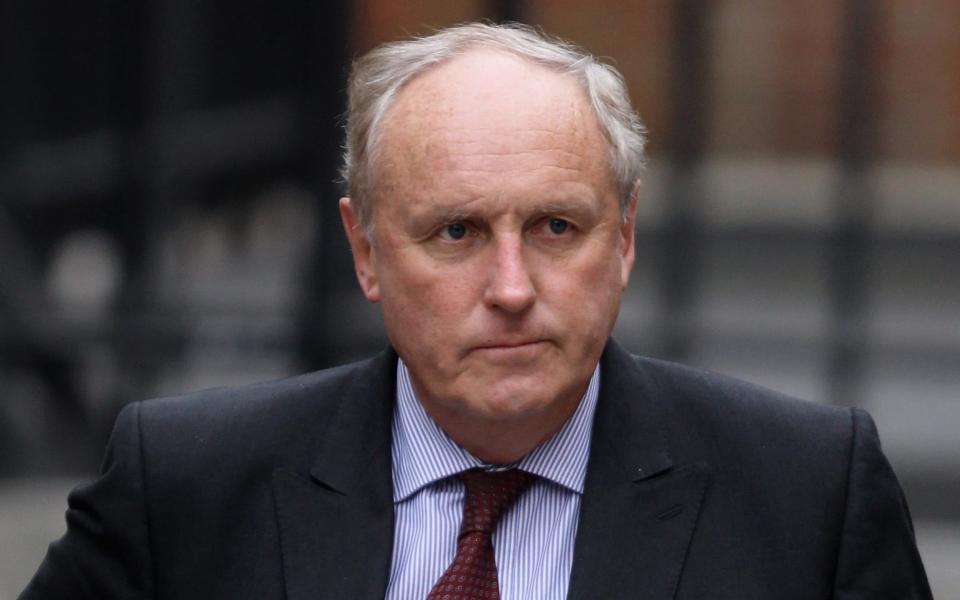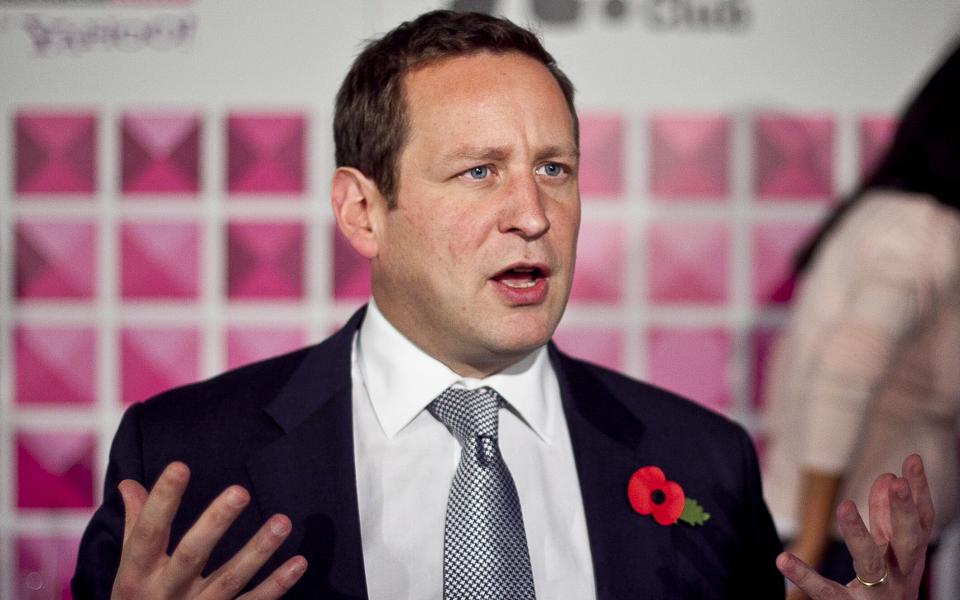How Facebook and Big Tech lost the room

David Cameron, fresh-faced and years away from the convulsions of the Brexit referendum, stood before investors and entrepreneurs to lay out his vision for Silicon Valley in Britain.
“Something is stirring in East London,” he said.
Launching plans for East London's Tech City, he lavished praise on Google and Facebook for building new campuses in the city and promised a light-touch approach to US tech giants.
“Don’t interfere so much that you smother, but do help wherever you can,” he said.
More than a decade on from that speech in 2010, the dial has shifted dramatically on how the Government deals with the world’s biggest technology companies.
Gone are the cosy relationships. Increasingly, Big Tech firms face a hostile regulatory environment and fiery rhetoric.
Today, senior figures in the Government are pushing for a hardline candidate to chair Ofcom, which will become Britain’s regulator of online harms and have an unprecedented ability to intervene in the web.
Paul Dacre, the former editor of the Daily Mail who is known to avoid using a computer and shuns all social media, is the favoured candidate of the Conservative Party's right.

Such a tough line on technology firms also contrasts with Prime Minister Boris Johnson’s time as Mayor of London. In 2014, he set up the first London Tech Week and happily rubbed shoulders with venture capitalists and tech lobbyists.
So just how and when did the relations between Big Tech and the Government turn so sour?
End of an era
With Cameron’s exit after the Brexit referendum defeat, a wave of former policy wonks and special advisers were poached by tech firms. Most famously, the former Deputy Prime Minister Sir Nick Clegg is now Facebook’s head of global policy.
Mr Clegg’s former chief of staff has been at Facebook since 2018. There are around a dozen former spads across Google, Microsoft and Uber.
By 2017, the picture had started to shift. The election of Donald Trump and the Brexit referendum meant tech firms were blamed by younger audiences for tipping the elections with data harvesting and political adverts. Meanwhile, Conservatives turned against tech firms for what they saw as left-wing bias in the Silicon Valley agenda.
The hiring of Sir Nick in late 2018 attracted criticism. The world had turned against the coalition era, voting for Brexit and decisively rejecting the Liberal Democrats at the 2015 general election. Clegg, until then a sceptic of the US tech giants, was accused of hypocrisy by MPs for taking the role.
Under Theresa May, the UK had a Prime Minister who was suspicious of technology titans after years in the Home Office overseeing struggles against tech’s encryption and terror content.
“There is no doubt that May as Prime Minister changed the dynamic substantially,” says Dom Hallas, a former government adviser and director of the Coalition for a Digital Economy.
“Her natural inclination came from the Home Office, which saw tech primarily from a security perspective.”
Matt Hancock, the previously technophile junior Digital Minister, met technology lobbyists in September 2017 to warn them that their “tech utopia” was over.
“Coming of age means taking more responsibility for our actions," he said.
"And so too must the internet, and the big players on it.”
Then there was the Cambridge Analytica scandal, where it was claimed that a small consulting firm helped swing the Brexit referendum using social media dark arts.
Although the most serious allegations were found to be untrue and many experts believe the company's actions made little difference, this led to a long-running series of interrogations of Facebook staff before the media select committee. The Silicon Valley firm endured a hostile reception from MPs.
Meanwhile, fears over online harms were put into stark relief by reporting of the suicide of Molly Russell, a 14-year-old girl who was exposed to images of self-harm on Instagram.
In April 2019, May’s government introduced its Online Harms White paper, which would form the backbone of the Online Safety Bill published earlier this month. The proposals followed a long-running campaign by papers including the Telegraph - and the Mail under Mr Dacre.
Sweeping new powers
Jeremy Wright, Digital Secretary between 2018 and 2019, says the Government’s moves to rein in technology firms followed the public mood. Voters felt that technology firms were spreading disinformation and posing a risk to children.
“As a society we started to understand, and as a government, that technology has a downside," Wright says.
"You have to have rules and regulations that apply online. We had not been through election cycles where it was clear that social media had a big effect. These problems had not been as visible.”
Wright, who met Mark Zuckerberg during his tenure on a visit to Silicon Valley, said the Facebook founder had favoured the Government stepping in.
“They were prepared to engage with us,” he says. “Although they have some reservations, their general approach was to accept governments have the right to regulate.”
Big Tech firms have continued to rankle UK politicians since. Google briefly censored TalkRadio on YouTube last year in a move condemned by cabinet ministers. The January decision by Facebook to permanently suspend US President Donald Trump over the Capitol Hill riots has raised questions about its power over political speech.
The Online Safety Bill - which was published this month, but is not likely to come into force until 2022 - will grant vastly expanded powers to Ofcom and hand new authority to whoever is chairman.
The sprawling bill will introduce a duty of care to protect children online and block illegal content, fining companies up to £18m or 10pc of annual turnover. It will also cover racist abuse and financial fraud, while also promising to protect journalism online and political speech.
Critics warn that the plans could prove a nightmare for freedom of speech by blocking comments that are classed as “legal but harmful”.
“The scope of these proposals is practically limitless,” says Matthew Lesh, of the Adam Smith Institute.
The Government has estimated that the policy will cost companies £2.1bn.
The other candidates
The appointment of Ofcom’s chairman is at the heart of a battle over how this regulation is implemented. Facebook officials were said to have spoken to senior officials over the process, prompting ministers to call for a re-run.
Ed Vaizey, a former Conservative MP, is seen as a more moderate potential chairman. Other runners include Sir Tom Windsor, a former rail regulator, and former Ofcom deputy chair Maggie Carver.

Facebook has denied having a preferred candidate.
A spokesman said: “Any suggestion of a lobbying campaign for or against any individual is simply false.”
However, Clegg's animosity to the former Mail editor is no secret - a man he has previously labelled “Darth Dacre” and accused of stoking up support for Brexit.
One insider claimed that the Ofcom appointment process could favour “those who would slot in comfortably with the current system and not rock the boat”.
As a 72-year-old Fleet Street veteran who has called for Facebook to be broken up, Dacre would certainly shake the system to its core.
Technology sources have their own fears about the incoming regime and new rules.
“There is a concern that tech could get caught up in the broader culture wars agenda,” one insider said.
In spite of this, the Government has won plaudits for its support of domestic companies with the £1bn Future Fund to protect start-ups suffering due to Covid and reforms to the UK’s listings regime.
They may no longer use quite the same language, but ministers still harbour the same ambitions for British tech as in Cameron's speech a decade ago.
However, the old days of a chummy relationship with the Silicon Valley titans are well and truly over.
